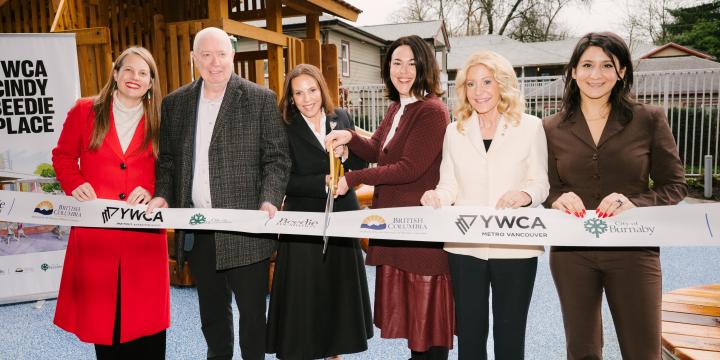
Changing the Narrative on Concussions
In May this year, YWCA Metro Vancouver partnered with Rethink Creative Agency and former NHL All-Star Trevor Linden to raise awareness around the shocking rates of intimate partner violence (IPV) that affect women, girls and gender diverse people in Canada.
Together, we created an impactful public service announcement called Concussion Story that was scripted to challenge the narrative that concussions are solely a sports injury.
Why are we focusing on concussions?
In consultation with Cridge Centre for the Family’s Brain Injury Services, SOAR BC Project and Ending Violence Association of BC, it is estimated that for every NHL concussion, more than 7,000 women in Canada suffer the same injury because of IPV. Concussions are the leading cause of brain injury in the country, and concussions that women sustain through IPV often go unreported and untreated.
The campaign also calls for increased funding for research, more accessible treatment pathways and better support for people who have experienced brain injury because of IPV. We also hope to educate people on concussion symptoms and to support women who suffer symptoms to seek help and feel safe to speak up.
Harnessing the success of the campaign, in September we co-hosted a Breakfast Roundtable with Her Honour Janet Austin, Lieutenant Governor of BC. We welcomed panelists Karen Mason and Dr. Paul van Donkelaar, co-founders of SOAR BC; and Dr. Shelina Babul with BC Children’s Hospital. Lisa Rupert, YWCA VP of Housing and Violence Prevention served as moderator.
These experts discussed obstacles to holistic treatments, gaps and advances in research and what policy changes we must demand to address this problem. There is much work to be done but this campaign is moving the dial toward action.
“Women tell us that they feel alone, isolated and are experiencing extreme levels of stress, anxiety and shame,” said Measha Gallagher, community program worker with the Cridge Centre for the Family’s Brain Injury Services. “The more our communities are talking about the impacts of brain injury from intimate partner violence, the more women will learn they are not alone.”
Concussion Story aired on SportsNet and CBC for four weeks, resulting in 160 pieces of coverage, 71 major media stories and more than 70 million views. The campaign sparked interest locally and around the world, with governments and organizations reaching out to speak with us about the impact of the campaign and interest in learning more.
We are deeply grateful to Karen Gilmore, former YWCA Metro Vancouver Chair and former YWCA Canada Chair, for believing in this project from its inception, for her generous support and for encouraging other generous donors to contribute to this campaign.
For more information, visit ywcavan.org/myconcussionstory. To support our advocacy, contact Amy Juschka ajuschka@ywcavan.org | 604 895 5810.

